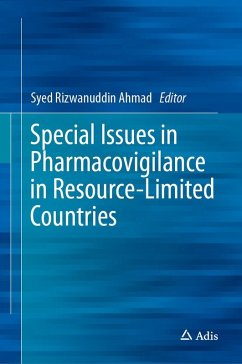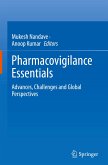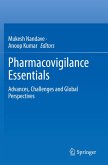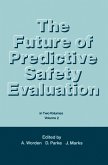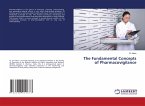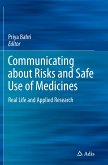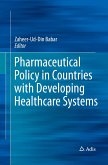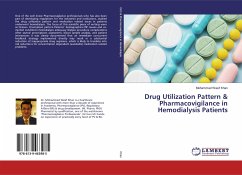Examining the state of pharmacovigilance systems in resource-limited countries, this book addresses the critical role that pharmacovigilance systems play, as drugs and vaccines become increasingly accessible in these settings. Issues unique to these countries are explored, including medical product safety and quality problems, the nature of support needed to build pharmacovigilance system capacity to effective level, global and regional strategies and efforts to develop institutional and professional capacity; the challenges being faced and how these are being tackled.
This book is a must-read resource for anyone involved in the provision of safe, and quality medical products; and its rational use in resource-limited settings, including staff of pharmacovigilance centers, regulatory authorities, academia, contract research organizations, the pharmaceutical industry, donor agencies and technical assistance providers.
This book is unique in its focus on pharmacovigilance in resource-limited countries (RLCs). Many RLCs face serious challenges in maintaining health care systems, ensuring access to essential medicines and promoting drug safety. The editor has built an exceptional and well-balanced pharmacovigilance compendium. The individual chapters by experts provide a valuable resource of national and regional pharmacovigilance experiences. A very good read not only for pharmacovigilance professionals in RLCs, but also for donors and other international organisations.
Hubert G Leufkens, PhD, FISPE, Professor of Pharmaceutical Policy
and Regulatory Science, Utrecht Institute for Pharmaceutical Sciences (UIPS),
Former Head of the Dutch regulatory agency (MEB), The Netherlands
I foresee this collection will become a very useful reference for everyone working or supporting the development of pharmacovigilance in countries with limited resources. We have utilized the services of Dr. Ahmad on several occasions. Hispassion and focus on important issues resonates throughout the book.
Adel Al-Harf, PhD, Vice President of the Drug Sector,
Saudi Food and Drug Authority (SFDA), Kingdom of Saudi Arabia
This book is a must-read resource for anyone involved in the provision of safe, and quality medical products; and its rational use in resource-limited settings, including staff of pharmacovigilance centers, regulatory authorities, academia, contract research organizations, the pharmaceutical industry, donor agencies and technical assistance providers.
This book is unique in its focus on pharmacovigilance in resource-limited countries (RLCs). Many RLCs face serious challenges in maintaining health care systems, ensuring access to essential medicines and promoting drug safety. The editor has built an exceptional and well-balanced pharmacovigilance compendium. The individual chapters by experts provide a valuable resource of national and regional pharmacovigilance experiences. A very good read not only for pharmacovigilance professionals in RLCs, but also for donors and other international organisations.
Hubert G Leufkens, PhD, FISPE, Professor of Pharmaceutical Policy
and Regulatory Science, Utrecht Institute for Pharmaceutical Sciences (UIPS),
Former Head of the Dutch regulatory agency (MEB), The Netherlands
I foresee this collection will become a very useful reference for everyone working or supporting the development of pharmacovigilance in countries with limited resources. We have utilized the services of Dr. Ahmad on several occasions. Hispassion and focus on important issues resonates throughout the book.
Adel Al-Harf, PhD, Vice President of the Drug Sector,
Saudi Food and Drug Authority (SFDA), Kingdom of Saudi Arabia

